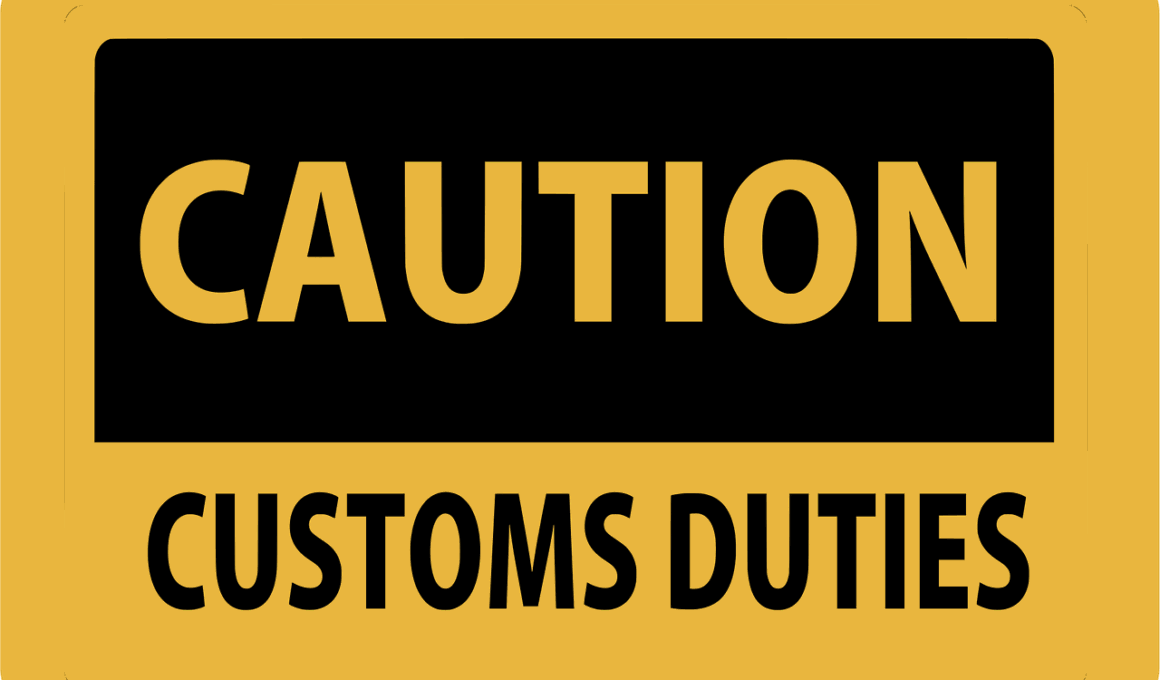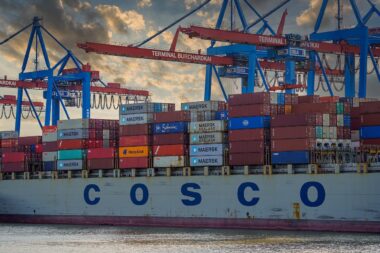Understanding Compliance Requirements in Cross-border Supply Chain Finance
Cross-border supply chain finance involves intricate transactions between multiple countries, which can create significant compliance challenges. Businesses must comprehend the regulations within each jurisdiction that impact their financial operations. Factors include foreign exchange controls, anti-money laundering measures, and tax liabilities that vary according to local laws. The requirements for documentation, such as contracts and invoices, must be meticulously followed. Non-compliance could lead to penalties, strained relationships with financial partners, or even criminal charges. Moreover, firms need to engage legal experts familiar with international trade. Compliance often means adhering to industry standards and guidelines. Understanding trade finance principles is crucial, as differences in regulations can affect transaction speed and security. Establishing strong relationships with local banks can help ease the regulatory burden. A focus on transparent practices can facilitate smoother operations. Businesses must invest in compliance training for their teams to navigate the complexities. This foundational knowledge fosters efficient trading and can amplify competitive advantages in the marketplace. It also enhances reputational credibility. As supply chains become increasingly interconnected, the significance of compliance expands, necessitating strategic approaches to manage potential risks.
Regulatory Pressure and Risk Management
Regulatory pressure is ever-present in cross-border supply chain finance, introducing additional layers of risk that organizations must manage effectively. The multifaceted nature of global regulations requires that companies remain adaptable to shifts in legal frameworks. Assessing these risks involves understanding the implications of international agreements and treaties, which can influence financial conditions directly. Businesses must consider factors like the evolving landscape of international compliance laws, including those from the Financial Action Task Force and regional trade agreements. It’s also crucial to monitor compliance frameworks that govern ‘Know Your Customer’ (KYC) regulations, as these are essential in combating fraudulent activities. Since regulatory bodies may vary widely in their oversight levels, firms must devise a comprehensive risk management strategy that encompasses all operational territories. This strategy would integrate performance metrics to oversee compliance standards across different regions and supply chains. Furthermore, implementing robust internal controls and regular audits can mitigate risks. Proactive risk management not only boosts regulatory compliance but also enhances organizational resilience, ensuring the business can withstand crises. Ultimately, it serves to protect assets and maintain customer trust while participating in a global marketplace.
The Role of Technology in Compliance
Technology plays a pivotal role in enhancing compliance capabilities within cross-border supply chain finance. Automation tools and financial software can streamline the compliance process, reducing human error and accelerating transaction times. Such tools are invaluable for managing extensive documentation and ensuring that all necessary paperwork meets required standards. Digital platforms enable real-time monitoring and reporting, which can significantly enhance transparency and accountability throughout transactions. Data analytics further aids compliance by enabling businesses to monitor transaction patterns and identify potential red flags swiftly. This proactive stance can prevent unauthorized activities and ensure adherence to local laws and regulations. Moreover, the implementation of blockchain technology can enhance security and reliability in cross-border transactions by providing a decentralized, tamper-proof record of all exchanges. Smart contracts can automate compliance checks and conditions, further decreasing the likelihood of errors. However, companies must ensure that technology infrastructure is up to date and aligned with current regulations to stay ahead in the compliance game. Continuous training in tech tools allows teams to leverage these resources fully. This technology-driven approach can result in significant cost savings while enhancing overall compliance performance.
Data Privacy and Personal Information Protection
Data privacy is a critical concern in cross-border supply chain finance, particularly regarding compliance with regulations such as the General Data Protection Regulation (GDPR) in Europe. Companies must be aware of how personal information travels across borders and ensure that they comply with varying regulations governing data protection. This becomes increasingly complex when dealing with suppliers and customers from different legal jurisdictions, each with its own set of laws. Businesses must implement robust data governance frameworks that align with international standards, ensuring proper consent is obtained for data collection. This includes structuring agreements to address data access, processing, and security measures. Transparency regarding data usage strengthens trust between businesses and their stakeholders. Furthermore, investing in data protection technology helps safeguard sensitive information against breaches. Regular data audits can detect areas of non-compliance and rectify issues before they escalate. Educating employees about data privacy responsibilities further enhances compliance efforts since they are often the first line of defense. Organizations should also establish clear protocols for reporting data breaches to comply with regulations swiftly. This holistic understanding of data privacy can prevent legal issues and support long-term business sustainability.
Cultural Considerations in Compliance
Understanding cultural implications is vital for compliance in cross-border supply chain finance. Cultures influence business practices and decision-making processes, potentially affecting adherence to compliance measures. Organizations must be sensitive to local customs, ethical norms, and regulatory expectations when operating internationally. This awareness helps businesses navigate the diverse landscape of compliance effectively. In addition, cultural intelligence can aid in fostering relationships with local partners, which is crucial in understanding regional compliance nuances. Companies can benefit from local legal experts who understand both cultural and legal landscapes to provide tailored compliance strategies. Additionally, fostering a cross-cultural understanding among teams enhances communication and mitigates risks. Multinational teams may face misunderstandings stemming from cultural differences, impacting compliance. Training programs that emphasize cultural competence can reduce these issues, leading to improved collaboration. Moreover, a thorough appreciation for local practices can improve negotiation outcomes, ensuring compliance requirements are addressed from the outset. Establishing a culture of compliance within an organization also requires commitment to integrity and ethical practices across all locations. This holistic approach empowers organizations to mitigate risks and operate effectively across diverse geopolitical terrains.
Continuous Improvement in Compliance Practices
Continuous improvement in compliance practices is essential for organizations involved in cross-border supply chain finance. Regulatory frameworks evolve, and businesses must adapt accordingly to maintain compliance and operational efficiency. Conducting regular assessments of compliance policies and practices allows firms to identify areas needing enhancement. Establishing a structured feedback mechanism can capture insights from employees about existing compliance procedures, contributing to a more informed compliance culture. Engaging with industry peers through networks and forums can further enrich knowledge and share best practices. This collaborative learning approach broadens understanding of emerging compliance trends and regulatory changes. Organizations should actively monitor key performance indicators related to compliance, helping to maintain high standards while identifying potential gaps. Investing in ongoing training and professional development is vital to keep teams updated on compliance developments. By foster a culture that emphasizes accountability and transparency, organizations can pursue compliance more effectively. This proactive stance can lead to optimized operations and an enhanced reputation in the marketplace. Moreover, continual engagement with regulators can strengthen working relationships, providing businesses with clearer guidance on compliance expectations in dynamic global markets.
Conclusion: Navigating Cross-border Supply Chain Compliance
In conclusion, navigating compliance in cross-border supply chain finance is a multifaceted endeavor that requires a commitment to understanding diverse regulations. As businesses operate in global markets, they confront various challenges that demand proactive risk management and strategic compliance strategies. Leveraging technology, fostering cultural awareness, and prioritizing data privacy play essential roles in establishing a successful compliance framework. Moreover, continuous improvement and education are pivotal in adapting to regulatory changes. Organizations can promote a culture of compliance by investing in training and engaging with industry networks to share insights. Strong relationships with local partners and legal experts can also facilitate smoother navigation through regulatory landscapes. Companies must stay agile, ready to adjust their practices in response to regulatory shifts. This flexibility is vital as financial compliance evolves. Ultimately, a focus on compliance not only enhances operational efficiency but also builds trust and credibility globally. Businesses committed to thorough compliance practices can uncover opportunities and mitigate risks in a rapidly changing environment. A robust understanding of compliance requirements supports sustainable growth and facilitates more effective cross-border transactions, positioning organizations for long-term success.
This final paragraph encapsulates the essence of compliance in cross-border supply chain finance, reinforcing its critical importance to organizational integrity, operational success, and risk management. Emphasizing the need for a strategic approach enables firms to better position themselves in the competitive marketplace. Understanding the complexities of regulations across multiple jurisdictions, investing in technology, and fostering cultural awareness are all paramount in effective compliance execution. Furthermore, engaging proactively with regulatory bodies ensures better alignment with evolving standards, which is essential in maintaining a competitive edge. Companies that prioritize compliance not only mitigate risks but also enhance their business reputation, leading to increased customer trust and loyalty. Comprehensive compliance strategies enable organizations to thrive in a global environment, where regulations vary widely, thus necessitating tailored solutions for success. Beyond initial compliance, businesses must ensure adaptability in their operations to withstand regulatory changes while pursuing sustainable growth. By aligning the objectives of compliance with overall business strategies, organizations can achieve not only regulatory adherence but also operational excellence. In summary, navigating the compliance landscape in cross-border supply chain finance is a journey that demands ongoing attention and commitment to achieve long-term success.





